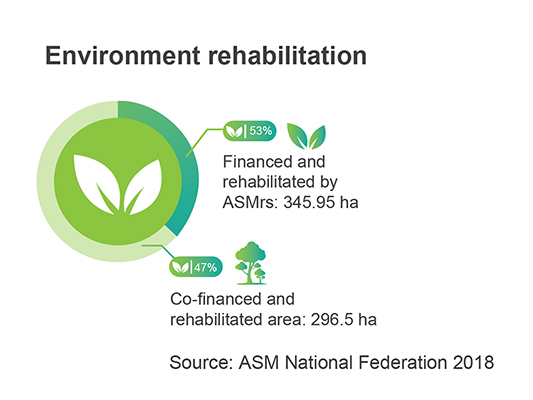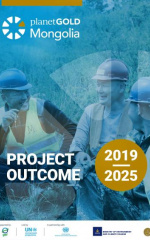Historically, artisanal miners have been marginalized from society due to the negative impact of their mining activities on the environment. This has prevented them from achieving their full economic potential and from developing more sustainable environmental practices. However, thanks to government efforts and an increase in awareness, that negative perception is shifting, and Mongolia’s artisanal miners are gradually becoming more formalized and are being recognized as important contributors to the economy.
Given that artisanal miners often lack access to knowledge, financial resources, and technological capacity, it has been very difficult to implement environmentally friendly practices in relation to rehabilitation of degraded land. Such mining impacts the interests of other stakeholders in the community, where large unfilled shafts, compacted soils, loss of vegetation and topsoil, and polluted water degrade the value of pasturelands and impact wildlife. As such, artisanal mining communities have often been excluded from local decision-making processes.
The Frugal rehabilitation is a proposed form of rehabilitation of degraded mining land that is defined as being economically affordable, socially acceptable and ecologically viable. It proposes techniques that seek to address acceptable and sustainable rehabilitation results at reasonable cost that are accessible and affordable to ASM and other communities undertaking them, supported by other funding sources such as local government funds identified for rehabilitation of degraded lands. Frugal rehabilitation, as with other forms of mining rehabilitation, are comprised of both technical rehabilitation and biological rehabilitation.



